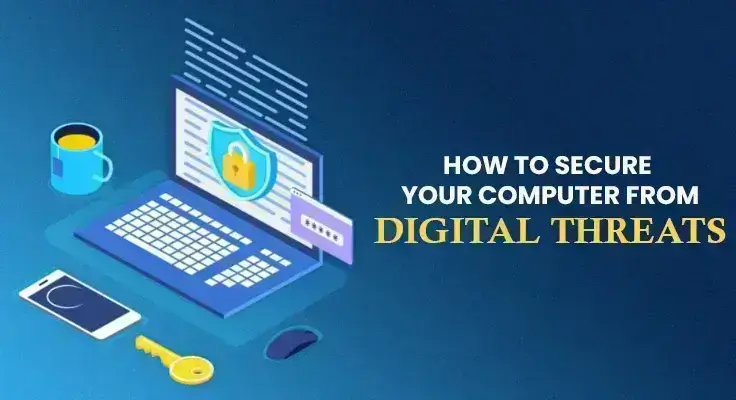A disturbing yet unmistakable trend has been plaguing the digital world for years. Digital threats are always on the rise, turning each year into a new record breaker for most data breaches, malware attacks, and other cyber dangers. Now that AI has made its grand entrance, things will only heat up more.
How can an ordinary user secure their system from such threats? Here’s a primer with all the fundamentals you need to mount a strong digital defense.
Enable Automatic Updates
Developers work tirelessly on operating systems and programs to make them more stable and introduce new features. A significant portion of these efforts is concerned with identifying and patching security vulnerabilities. Automatic patching isn’t completely foolproof, but it does ensure you have the latest, most secure version. Using patch management software can help streamline this process and ensure all your applications are up to date
You’ll also want to periodically assess which programs you haven’t been using for a while and delete them. This reduces the attack surface and can free up system resources. Finally, you’ll want to avoid outdated software without support.
Install Antivirus and Anti Malware
Lots of actions can trigger a malware attack. You could click a link inside a shady email or visit a site with malware-infected ads. Even if you have cybersecurity basics like recognizing phishing scams down, such threats can still creep up on you unnoticed.
Antivirus and anti-malware are specialized tools that can sniff out, quarantine, and delete threats before they cause harm. Windows Defender is built into the latest Windows versions and is quite effective. However, Linux users will need to install an alternative on their own.
Set Up a Firewall
Firewalls are a core part of a comprehensive digital defense. They analyze traffic and can block access to undesirable or dangerous websites. Modern ones are quite sophisticated and can discover covert access attempts or malware attacks more effectively.
Start Using a Password Manager
The online accounts you use daily can be a more serious source of risk than anything you store on or do with your computer. They’re vulnerable to data breaches that result in an account takeover, financial loss, or even identity theft if you link enough personal information to an affected account. The solution? A password manager.
The top password managers that you can find should at least tackle two critical flaws inherent to password-based security. On the one hand, they should ensure you’re using strong, one-of-a-kind credentials for each account and keep the damage contained. On the other hand, they should come with two-factor authentication that gives you the chance to restore compromised accounts since their passwords aren’t enough to log in without a second key.
Rather than let an unsecured browser handle account autofill, you can get a Chrome password manager add-on and enjoy the same convenience while keeping access to all passwords restricted to the manager’s encrypted vault.
Encrypt Your Data
We all keep invaluable data that needs additional protection, whether precious personal memories or crucial work-related documents. The best way to restrict access to such files is via encryption. Doing so uses a sophisticated cipher to hide their meaning. There’s still a chance someone might steal your data, but they won’t be able to do anything with it since they don’t have the decryption key.
Perform Regular File Backups
Theft shouldn’t be your only concern. Hard drives last only so long, and you never know when a power surge or elemental hazard could damage your hardware. Regular backups are essential. You can start with the old yet still viable 3-2-1 strategy and keep copies in the cloud and on external physical devices.
Conclusion
Concerns regarding data privacy and safety are mounting, as are incidents of harmful acts targeting ordinary users and businesses alike. Follow the tips we’ve outlined here, especially concentrating on the ones that are not yet a part of your computer defense strategy. Then, not only will your computer become much more resistant, but you’ll learn about overall digital safety practices and can share them with others.
Also Read: The Future of AI in Digital Marketing: Navigating New Frontiers












